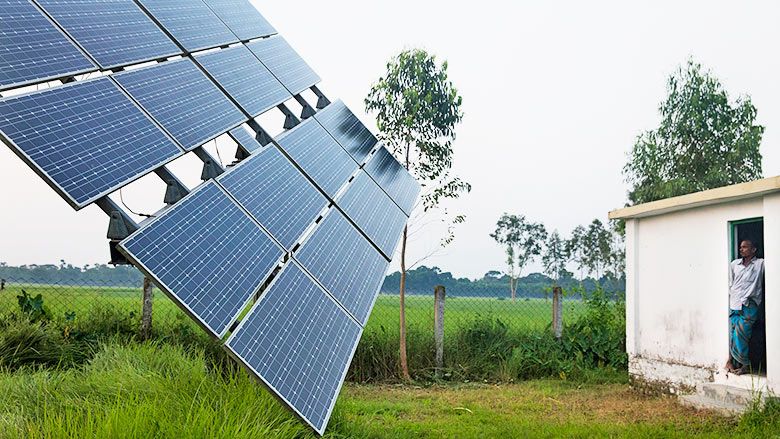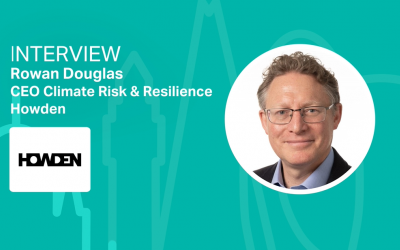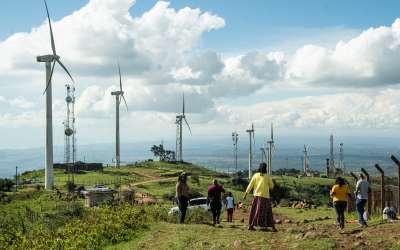IFC, Amundi to Create World’s Largest Green-Bond Fund Dedicated to Emerging Markets
IFC today agreed to create the largest green-bond fund dedicated to emerging markets—a $2 billion initiative that aims to deepen local capital markets and expand financing for climate investments

PRESS RELEASE - Washington, D.C. - 21 April, 2017 - IFC, a member of the World Bank Group, and Amundi, a leading European Asset Manager, today agreed to create the largest green-bond fund dedicated to emerging markets—a $2 billion initiative that aims to deepen local capital markets and expand financing for climate investments.
The global market for green bonds has expanded rapidly in recent years—totaling more than $100 billion in 2016. But a huge gap persists: few banks in developing countries have issued such bonds. IFC and Amundi expect the new fund to encourage more local financial institutions to issue green bonds by increasing global demand and building local markets. Together, through a donor-funded investment support facility led by IFC, they will work with local financial institutions to strengthen their capacity to issue green bonds, providing training and sharing international best practices with them.
IFC will invest up to $325 million in the new Green Cornerstone Bond Fund, which will buy green bonds issued by banks in Africa, Asia, the Middle East, Latin America, Eastern Europe, and Central Asia. Amundi will raise the rest of the $2 billion from institutional investors worldwide and will provide its services in managing emerging-market debt. The fund aims to be fully invested in green bonds within seven years.
Amundi was selected through a comprehensive and competitive process. The fund is the first product of a joint venture between IFC and Amundi aimed at developing green finance in emerging markets.
“This green-bond fund will lower the risk for the private sector and attract new investors – essentially creating a market where there was none,” said IFC CEO Philippe Le Houérou. “We’ve already identified dozens of banks in many developing countries around the world that could be interested in this fund. It’s a win-win—supporting the green economy and deepening access to international markets for emerging market issuers.”
Sponsored Content
Xavier Musca, Chairman of Amundi said: “This innovative partnership with IFC is a major achievement for Amundi, the leading European Asset Manager. This project highlights the strong capabilities in green financial innovation of Credit Agricole Group. I consider this project as a game changer: it is both an investment opportunity for institutional investors and it will have an impact on society by accelerating the shift of emerging markets toward a green economy.”
Initially, the fund will focus on countries and banks that have a high potential to issue green bonds— before spreading into other markets. IFC will also provide first-loss coverage, helping to lower the risk and mobilizing financing from the private sector. This will help ensure that the fund can operate in more challenging markets, including the poorest countries and conflict-affected areas.
The fund will contribute significantly to the World Bank Group climate targets and IFC’s goal of increasing its climate investments to 28 percent of investments made from its own account while mobilizing an additional $13 billion a year in private financing by 2020.
The Bank Group is a major issuer of green bonds. So far, the World Bank has issued $8.5 billion in green bonds in 18 currencies. IFC has issued $5.8 billion in 12 currencies.
About IFC
IFC, a member of the World Bank Group, is the largest global development institution focused on the private sector in emerging markets. Working with 2,000 businesses worldwide, we use our six decades of experience to create opportunity where it’s needed most. In FY16, our long-term investments in developing countries rose to nearly $19 billion, leveraging our capital, expertise and influence to help the private sector end extreme poverty and boost shared prosperity. For more information, visit www.ifc.org






